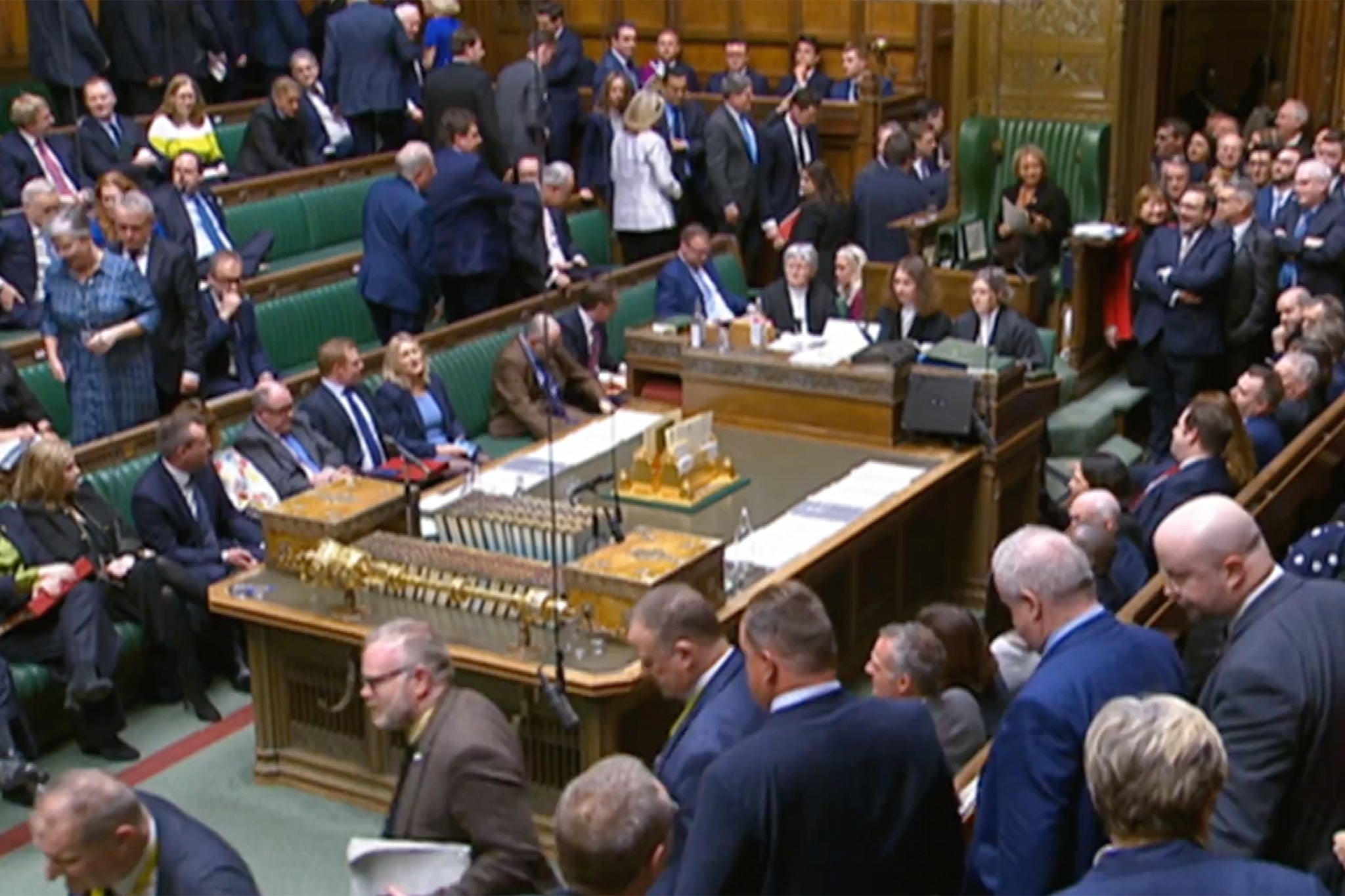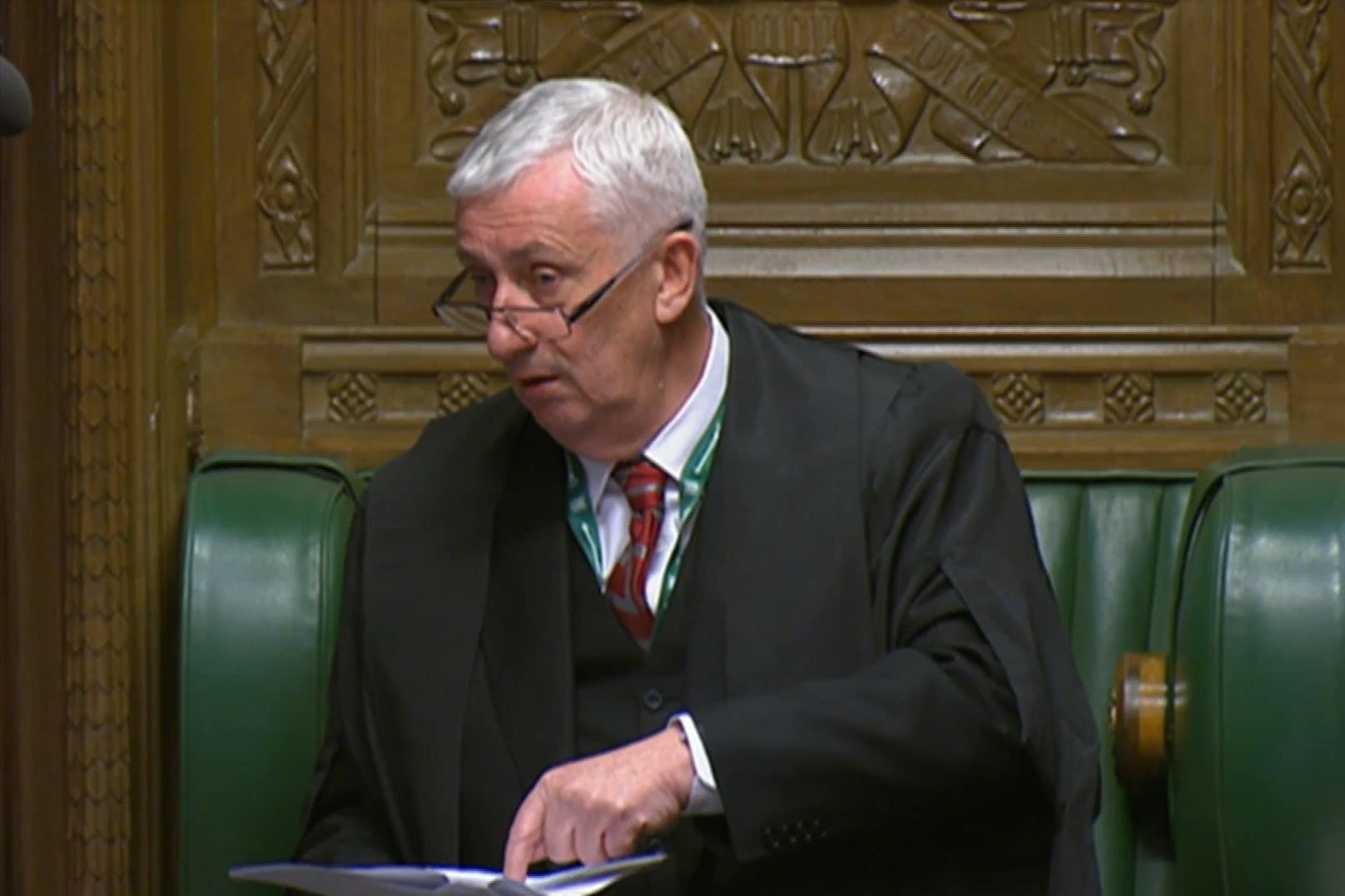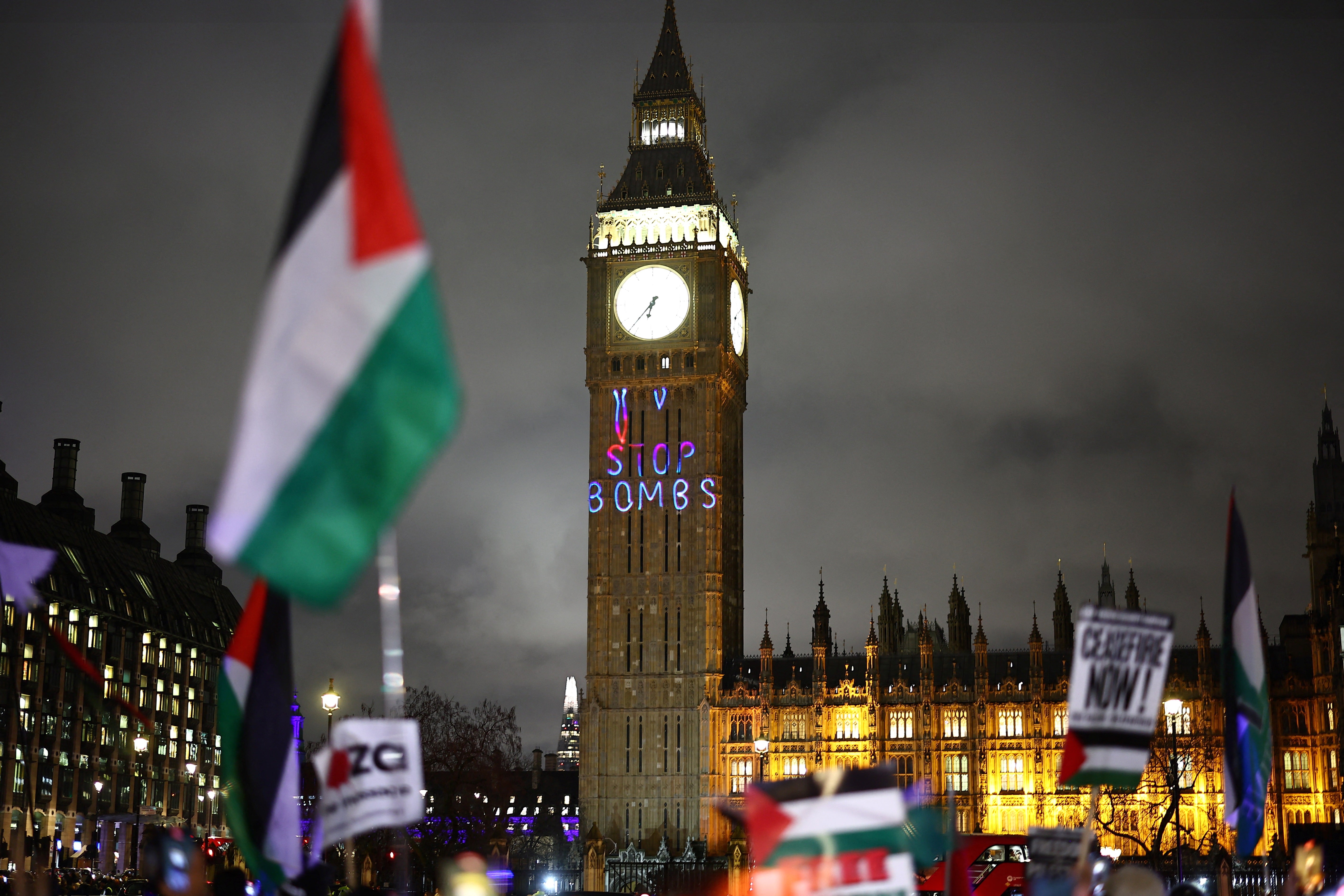Labour amendment pushing for immediate Gaza ceasefire passes amid Commons chaos
The Government and SNP condemned Speaker Sir Lindsay Hoyle for his handling of the Gaza ceasefire debate.
Your support helps us to tell the story
From reproductive rights to climate change to Big Tech, The Independent is on the ground when the story is developing. Whether it's investigating the financials of Elon Musk's pro-Trump PAC or producing our latest documentary, 'The A Word', which shines a light on the American women fighting for reproductive rights, we know how important it is to parse out the facts from the messaging.
At such a critical moment in US history, we need reporters on the ground. Your donation allows us to keep sending journalists to speak to both sides of the story.
The Independent is trusted by Americans across the entire political spectrum. And unlike many other quality news outlets, we choose not to lock Americans out of our reporting and analysis with paywalls. We believe quality journalism should be available to everyone, paid for by those who can afford it.
Your support makes all the difference.Labour’s amendment calling for an immediate humanitarian ceasefire in Gaza has been approved in the House of Commons amid chaotic scenes.
SNP MPs and some Conservatives walked out of the chamber in protest at Speaker Sir Lindsay Hoyle’s handling of the Gaza ceasefire debate.
Commons Leader Penny Mordaunt claimed Sir Lindsay had “hijacked” the debate and “undermined the confidence” of the House in its long-standing rules by selecting Labour’s bid to amend the SNP motion calling for an “immediate ceasefire” in the Israel-Hamas war.

It had been expected that Sir Lindsay would select just the Government’s amendment seeking an “immediate humanitarian pause” to the Israel-Hamas conflict, which could pave the way for a more permanent stop in fighting.
But instead, he decided that the Commons would first vote on Labour’s calls for an “immediate humanitarian ceasefire” before moving on to further votes on the SNP’s original motion, and then the Government’s proposals if either of the first two were to fail to garner enough support.
Conservative MP William Wragg, who called for Sir Lindsay to resign, later tried to make the House of Commons sit in private but MPs rejected the proposal.
Sir Lindsay apologised to the Commons, telling MPs amid shouts of “resign”: “I thought I was doing the right thing and the best thing, and I regret it, and I apologise for how it’s ended up.”

SNP MPs were understood to have headed to the voting lobby after the walkout from the chamber.
Labour’s amendment was approved without any division to be voted on. The developments meant Sir Keir Starmer avoided another revolt over the Middle East issue.
In an apparent attempt to prevent Wednesday’s vote from reopening divisions in the party, the Labour leadership on Tuesday put forward its own wording, calling for an “immediate humanitarian ceasefire”.
Labour’s motion emphasises that this involves both sides agreeing to lay down their arms and the return of all hostages taken by Hamas militants, and calls for a diplomatic process for achieving a two-state solution and a lasting peace.

The original SNP motion is shorter, calling for “an immediate ceasefire”, the release of all hostages held by Hamas and “an end to the collective punishment of the Palestinian people” following Hamas’s 7 October attacks.
Had the Speaker not chosen Labour’s amendment for debate, Labour MPs in favour of a ceasefire could have been pushed to back the Scottish nationalists’ motion, in a repeat of a damaging rebellion over the Middle East issue in November.
The Commons debate took place as thousands of pro-Palestinian demonstrators took part in a rally in Parliament Square.